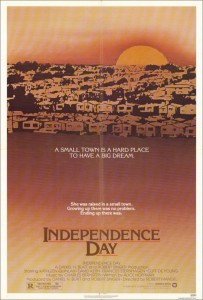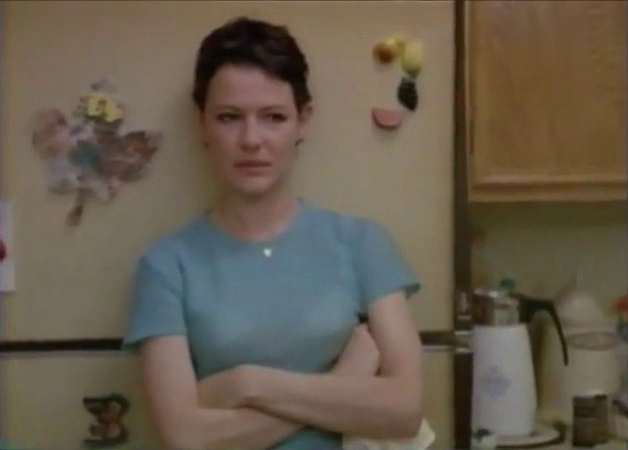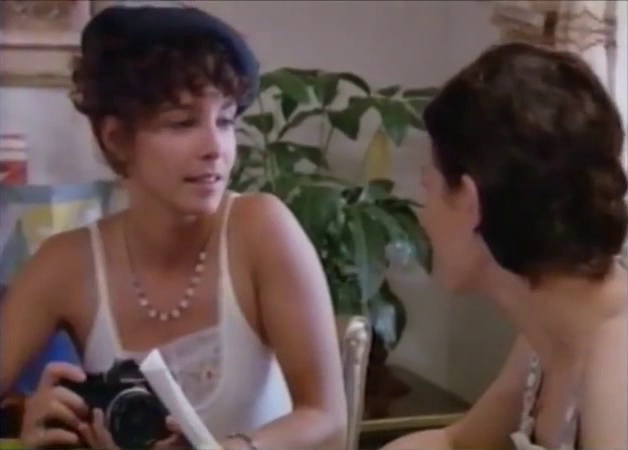“Don’t let Jack make you forget what you really want.”
|

Synopsis:
An aspiring small-town photographer (Kathleen Quinlan) hoping to get accepted to art school in L.A. begins an affair with a mechanic (David Keith) whose sister (Dianne Wiest) is married to an abusive husband (Cliff De Young).
|
|
Genres, Themes, Actors, and Directors:
- Domestic Abuse
- Feminism and Women’s Issues
- Kathleen Quinlan Films
- Romance
- Small Town America
Review:
Based on a script by novelist Alice Hoffman, this unfortunately-titled indie film — forever overshadowed by the 1996 sci-fi hit of the same name — features a fine central performance by Kathleen Quinlan, whose main claim to cinematic fame remains her Oscar-nominated turn as Tom Hanks’ wife in Apollo 13. However, the dilemma posed by both Quinlan’s aspirations and her romance with car-racing Keith (Will she or won’t she get into the school of her dreams? Will he or won’t he accompany her on her quest to the Big City?) is ultimately rather predictable and uninspired. Much more fascinating is the film’s secondary narrative, about an abused housewife (Wiest, giving a heartbreaking performance) who appears to simply accept her lot in life with a timid, fearful smile, yet has an audacious escape plan in mind. Director Robert Mandel should be applauded for daring to present Wiest’s situation in all its discomfiting rawness; truthfully, the film really should have been primarily hers.
Redeeming Qualities and Moments:
- Dianne Wiest as Nancy

- Kathleen Quinlan as Mary Ann

Must See?
No, but it’s worth seeking out simply for Wiest’s stand-out performance, and for its unforgettable denouement. Listed as a Sleeper and a Personal Recommendation in the back of Peary’s book.
Links:
|
One thought on “Independence Day (1983)”
In just about total agreement here – not a must, but worth a look for the sub-plot and the leading performances (Quinlan, Wiest, Keith and De Young).
‘ID’ does not start out in a promising manner – with its kind-of-sappy opening tune, you might almost think you’re in tv-movie-land. But the film will probably slowly work on you if you give it a little time. Director Robert Mandel manages to capture the awkwardness of the family structure when it contains unsettling elements..and unsettling is exactly what the film builds to. Another plus is that the script doesn’t absolutely spell everything out for you – it has a believable naturalness. Even if I personally would like it to be somewhat sharper, it’s still rather effective.
Quinlan’s no-nonsense character is refreshing – esp. her attempt to stand up to De Young. (The following year, Quinlan would be seen to terrific advantage in the Joe Dante segment of ‘Twilight Zone: The Movie’.) But, yes, this really is Wiest’s movie. We’re really left to wonder about the difference between who she is as a person and what’s being done to her – her Nancy is layered in a way unlike any other character in the piece.
Favorite sequence: Wiest invites Quinlan and Keith to dinner.